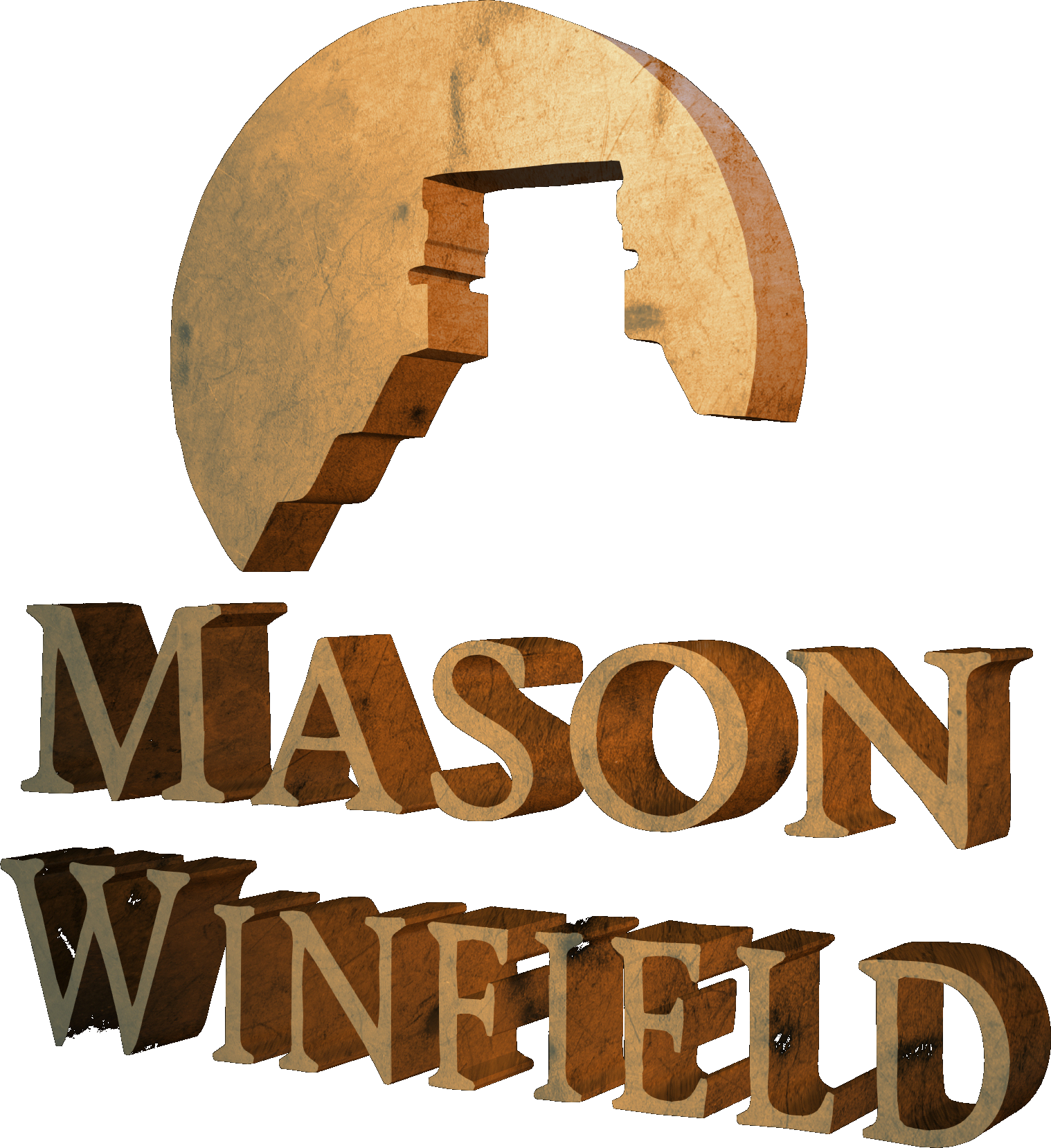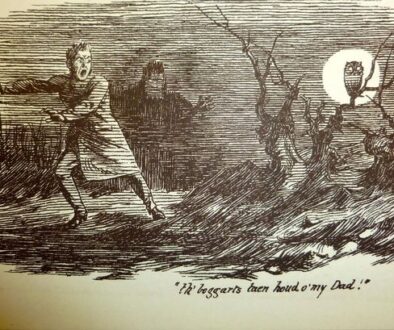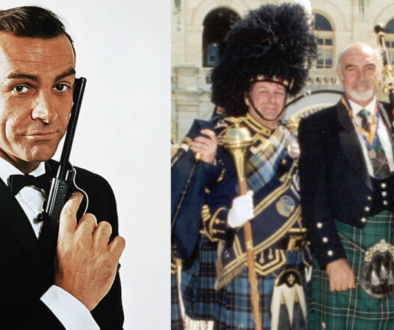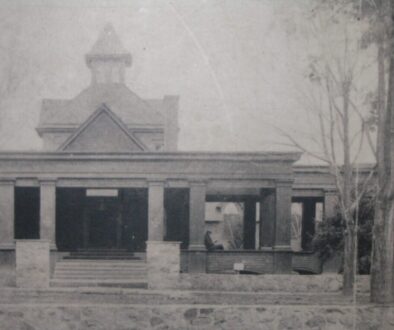“Letting Your Spirits Catch You,” Part 2
In my last post I referred to the beautiful fable given us by the young bardic poet Dónall Ó Héalaà at the home of Andrea and Owen O Suilleabhain. It was about the Gaelic champion Conan and the villagers who were helping him haul his treasure-chest back to the High King at Tara. The villagers started out wonderfully, but after a couple days the hero woke to find them nearly catatonic. They sat and twitched and shivered. It was impossible to rouse them. Finally their druid came to long enough to explain to the hero that they had never been so far from their homes before. They needed “to let our spirits catch up with us.”
Anthropologists – some of the ones I’ve read, anyway – might call the state they were in “dissociation.” It refers to the sense that the state of life and society had gotten ahead of the afflicted persons and that a time-out, a period of psychic incubation, was needed to pull it all together. The condition’s been observed in many indigenous – “native” – societies about the world. Like moths developing inside cocoons, affected individuals detached from normal consciousness and social life and went within themselves into shutdown states, sometimes for days. At the end, they recovered their psychic bearings, rose, shook themselves off like dogs shedding water, blinked a few times, and started to act normally.
In less complex societies, it seems, individuals were closer to their own moods and spirits. They sensed this type of crisis-point coming in their own lives and knew the needed medicine. I am not sure we Americans even sense the problem anymore. But we show it.
The signs of a collective psychic collapse are everywhere. Look at the social, political, and emotional fragmentation. Mass shootings. Suicides. Substance abuse. Grievance groups. The virtual worship of pop fads. Is there a more trend-crazy country in the world?
What’s the cause of this mass psychic fragmentation?
I don’t blame the breakdown of the nuclear family. That’s never been good for a society, but in ours it’s a consequence of other developments, most of them political.
I don’t blame a lapse of morals. What would I mean by that if I did? Whose morals? Morals are relative.
I don’t blame the abandonment of religion. Whose religion? The mainstream faiths are slumping, but lots of alternative spiritualities are picking up for them. I also see political movements that, except for the lack of a direct theology, seem to act like their own kind of religion.
I don’t blame the drugs. Humanity has always liked to get high. The question with drugs is balance – though it seems that with some of the new ones, there is no balance to be had.
To me, the developments above are either symptoms of the true problem or reactions to it. To me they hide the hollow at the core – the lack of identification with anything vaster and older than the self that gives life a point beyond material attainment and physical comfort. So many of us never even think of life as any more than a single span in the big spectrum, an accident of light and matter whose brief blink of awareness is the only thing that counts. We sense no continuum from any lives behind us, hence, we feel no debt to those around us or to come. We are spiritually rootless.
Something has been lost that once more of us had. The despair is growing because we are farther in place and even farther in time from the source that would have filled the internal vacuum. Most of us have lost intuitive touch with our Elders. We have lost “the Village.”
It seems no wonder that we Americans are showing some stress. The United States is a high-tech, ever-more-rapidly developing nation. Lifestyles and hence consciousness have changed more radically in the last two hundred years than they had in the preceding fifty thousand. We also – except for the Native Americans – are a nation composed of immigrants or their fairly recent descendants. All but that one-percent of us aren’t even on the continent of our ancestors’ homelands. Could it be that some, even many of us, might need to have a dramatic and targeted time-out like those villagers in Donall’s parable? Is there something we need to recover?
Some of us, of course, seem to sense no loss of balance. Some of us are content in friends, family, career, and life path. But for so many of us, things don’t work out that smoothly. Many of us sense a hollow, and we can only look among the choices we are presented to fill it. No wonder we keep hopping from one to the other.
The answer seems to me to be for each troubled individual to rediscover the source that charges the inner batteries and gives life a meaning beyond a single span. We need to reestablish a connection to a root that is gone from the world, and that now has to be within us. The trick is finding it and learning how to get closer to it.
While the insights of any great religious/mystical tradition will help any individual, I don’t think they all work equally for everyone. I think the spiritual quest might have to be more personalized. There shouldn’t be a one-size-fits-all approach to something this vital.
Some believe that the answer to the psychic anguish could lie in an individual’s earlier lives. Some believe that we could bridge the gulf by coming to an identification with our most influential former selves – our spiritual elders – and reconnect to the traditions that mattered to them. With that base restored, we might live more fulfilled lives and not need to look for substitutes. Maybe.
There are suggestions that reincarnation may exist – that birth may indeed be “but a sleep and a forgetting,” as wrote Wordsworth in his ode – but they don’t convince everybody, including me. I’ve looked within myself and can’t sense any sure past lives of my own. Furthermore, how would we find and identify our past lives, including the one that could heal us? The process of identification seems, let us say, imprecise.
One thing that is not imprecise is our DNA, our ancestry, even for people who, like me, are mutts. I wonder if an answer could lie in this direction.
The Jungians believe in a collective unconscious, a deep cellar to every human mind that holds a storehouse of symbols, images, and insights only open to the conscious mind in stray snatches and impressions. If there is such a part of us, its fundamental treasures, its archetypes, could go back at least hundred thousand years.
If you believe there could be such a thing innate to every person in modern humanity, every Homo sapiens sapiens, why couldn’t there be a younger one, one that is also cultural? At least to me, it feels like there is.
Could there be a collective cultural unconscious? Could the answer for each individual lie within a spirituality that could even be ancestral? If there could be the faintest chance to work healing by it, we should explore it. How would we go about finding our own spiritual elders?
I can only comment based on my search for my own sources, but I have a few ideas based upon it. I am sure the journey for any of us would have to be active. It would also be deeply internal, maybe even arduous. I think I may be writing and teaching about that soon.




